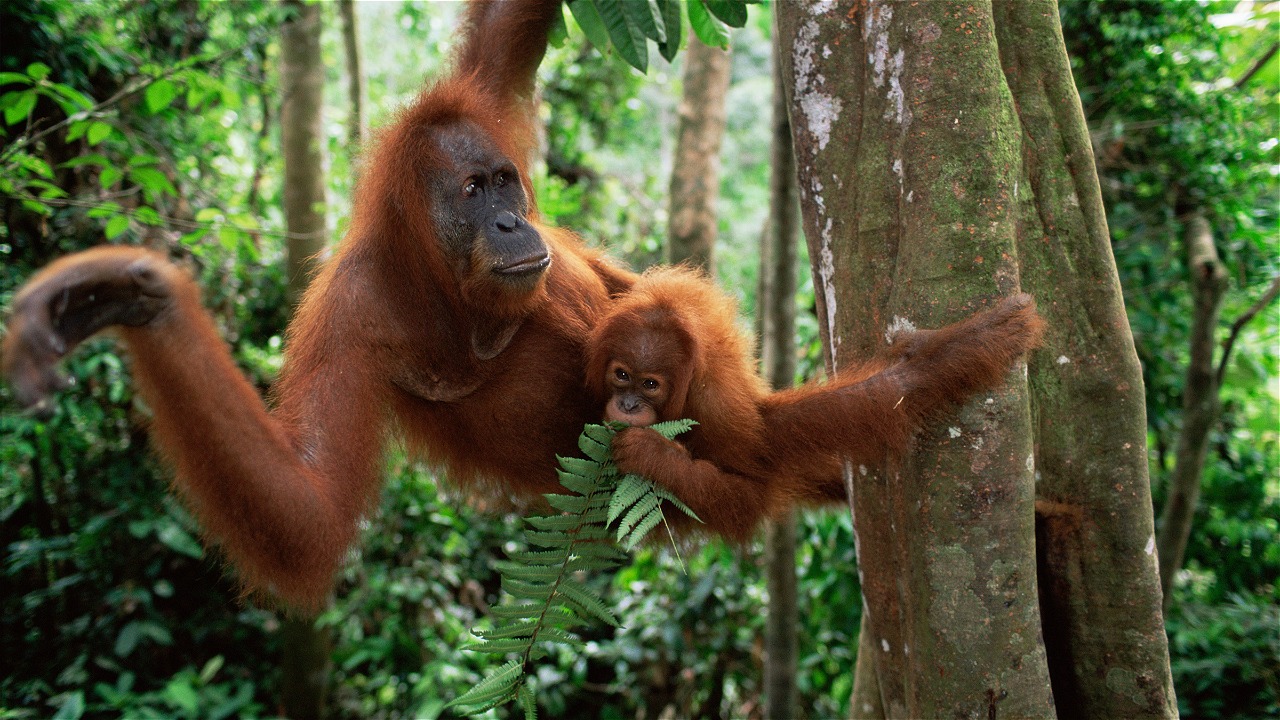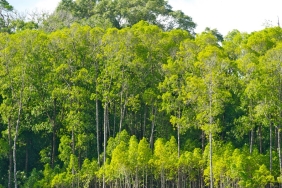FINALLY, THREE BABY ORANGUTANS UNDERGO QUARANTINE AT ORANGUTAN REHABILITATION CENTER
Three Sumatran orangutans who were victims of a wildlife trafficking syndicate in Pekanbaru were relocated to the Orangutan Rehabilitation Center managed by the Sumatran Orangutan Conservation Program (SOCP) located in Batu Mbelin Village, Sibolangit District, Deli Serdang-North Sumatra (Sumut) on Sunday, (15/11). After eight days in the care of Pekanbaru Medical Veterinary Clinic, the baby orangutan was finally relocated accompanied by officers from Riau Police, BBKSDA (Riau Natural Resources Conservation Center) and WWF-Indonesia.
The decision to relocate the baby orangutan was based on the consideration that it would receive better care. According to the Head of Protection Section of BBKSDA Riau, Rinaldo, the three are still very small, so they need special care. The SOCP organization is considered experienced in handling orangutan rehabilitation in Aceh, North Sumatra and Jambi.
SOCP Program Manager, Asril Abdillah, explained that the three baby orangutans will be transported by road about 14 hours from Pekanbaru to the quarantine center in Sibolangit, North Sumatra. Before being released into the wild, the three baby Orangutans will go through a quarantine process, socialization, and later release when they are ready for the wild. Asril added, "To get a baby Orangutan, poachers will kill the mother because the mother will defend her child until she dies. "According to him, these Orangutans come from different mothers because one adult female usually only gives birth to one child at a time within a span of six years."
The three baby orangutans were rescued by Riau Police's Special Criminal Investigation Directorate (Ditreskrimsus) when they arrested members of a protected wildlife trade syndicate on Saturday (7/11).
From the arrest, police confiscated three baby orangutans that were to be traded in Pekanbaru for Rp 25 million each. The primates are orangutans of the species Pongo abelii which lives in the forests of Aceh.
Osmantri, Coordinator of Wildlife Crime Team WWF Central Sumatra Program stated, "It is necessary to hasten the law enforcement efforts against these three suspects, we hope Riau Police can move quickly to complete the investigation of this case and proceed to trial". Osmatri continued, "Law enforcement on wildlife crime should be a serious concern for law enforcement. Do not let this arrest effort not be accompanied by maximum punishment like some previous cases where the perpetrators of wildlife crimes were only lightly punished."
According to the Natural Resources Conservation Act, the maximum penalty for wildlife crime is 5 years in prison and a fine of 100 million rupiah, "This penalty is no longer relevant, too small so it needs to be revised immediately to build a deterrent effect for the perpetrators" continued Osmantri.
The Sumatran orangutan (Pongo abelli) is the most endangered orangutan species in Indonesia compared to its Bornean relative (Pongo pygmaeus).





